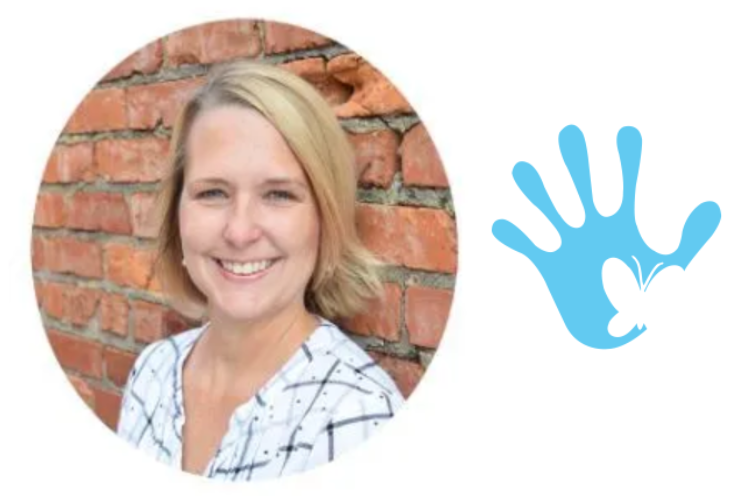
Customer Bio: Emily Hutcheson, Butterfly Bridge CAC
“TREAT EVERY CASE LIKE IT IS THE ONLY CASE WE HAVE”
This is Emily Hutcheson and Butterfly Bridge CAC’s mentality as they serve children victimized by abuse. Emily is the Assistant Director at Butterfly Bridge, leading the two offices in Autauga and Elmore Counties. She works with her long-time mentor and friend, Jana Zuelzke, who is the Executive Director. Along with their hard-working staff, Emily and Jana lead the effort to provide justice and restoration for the children of Central Alabama.
WHERE SHE NEEDED TO BE
In her own words, Emily “fell into” the CAC field through school. While earning her Master’s degree in Counseling from Auburn University Montgomery, she started an internship at the Child Protect CAC in Montgomery. While she didn’t have all the details figured out for her career, she knew she wanted to work with children and began to help provide therapy at the CAC. It was also at Child Protect that she would meet Jana, who helped her get acclimated to the child advocacy world. 17 years later, Emily finds herself saying, “I can’t imagine doing anything else.” She eventually transitioned to Butterfly Bridge in 2017 to start offices in Autauga and Elmore Counties.
CHALLENGES OF A NEW CAC
Since Autauga and Elmore Counties had not had a dedicated CAC, it has taken time for the community to understand how big of a problem child abuse is. Emily’s team consistently looks for opportunities to educate parents, children, and residents about child abuse – how to prevent it as well as how to respond to it. But creating awareness is a gradual process that cannot be achieved overnight, and even when people are exposed to the problem, they may be skeptical that it is a big issue in their own community.
Emily honestly shared that the community can “almost be too conservative and not want to talk about abuse or have kids hear about it.” When her staff has taught in the community, they have seen discomfort from institutions who don’t want them to use sensitive words with children. However, not sharing difficult information can actually make children vulnerable to perpetrators because they don’t know how to spot danger.
Emily admits that sometimes “it takes something big” to make residents wake up to the reality of child abuse in their own community. A major case can force the community to acknowledge these incidents don’t just occur in big cities but can also occur in the quieter parts of Alabama. But before there are too many big incidents, Emily and her team seek to inform and educate their communities so they can work together with residents to prevent and treat child abuse.
THE CRITICAL HEALING PROCESS
When incidents happen and victimized children come to the CAC, a forensic interview allows them to share their story in a comfortable setting. But solving a crime is one battle; healing for the victims is another. While the forensic interview is essential for the law enforcement side, follow up therapy is critical for families to move on and heal from traumatic events. To meet that need, the CAC offers trauma-focused therapy for all children, and each child can come as long as needed. Some even continue to return for a few years.
Given these therapy services, it is important for the CAC facility to feel inviting and be a place families are comfortable returning to after the interview. Therefore, Emily and Jana have hopes and plans for a new facility in Autauga County with the goal of a more spacious, child-friendly environment.
BALANCING WORK & LIFE
As a wife and mother, Emily has had to find a good balance between work and family life. Early in her career, she would be visibly sad after coming home from emotional CAC work and noticed how it affected her daughter. This experience motivated Emily to do whatever she could to leave work at work and pursue a healthy personal life. Today, she makes sure to include church and exercise in her life to counter the emotional toll of child advocacy. She also encourages her staff to be open about struggles, so they can support each other as they process difficult cases.
With all these challenges, one may wonder if Emily still thinks this career path is worth it, but she completely does. She acknowledges this field is not for everyone, but speaking for herself, “It is the most difficult yet rewarding work. You get to see the resiliency of children and what they can overcome.” The residents of Elmore and Autauga Counties must be thankful to hear those words. They will surely continue to reap the benefits of having a dedicated CAC led by Emily.